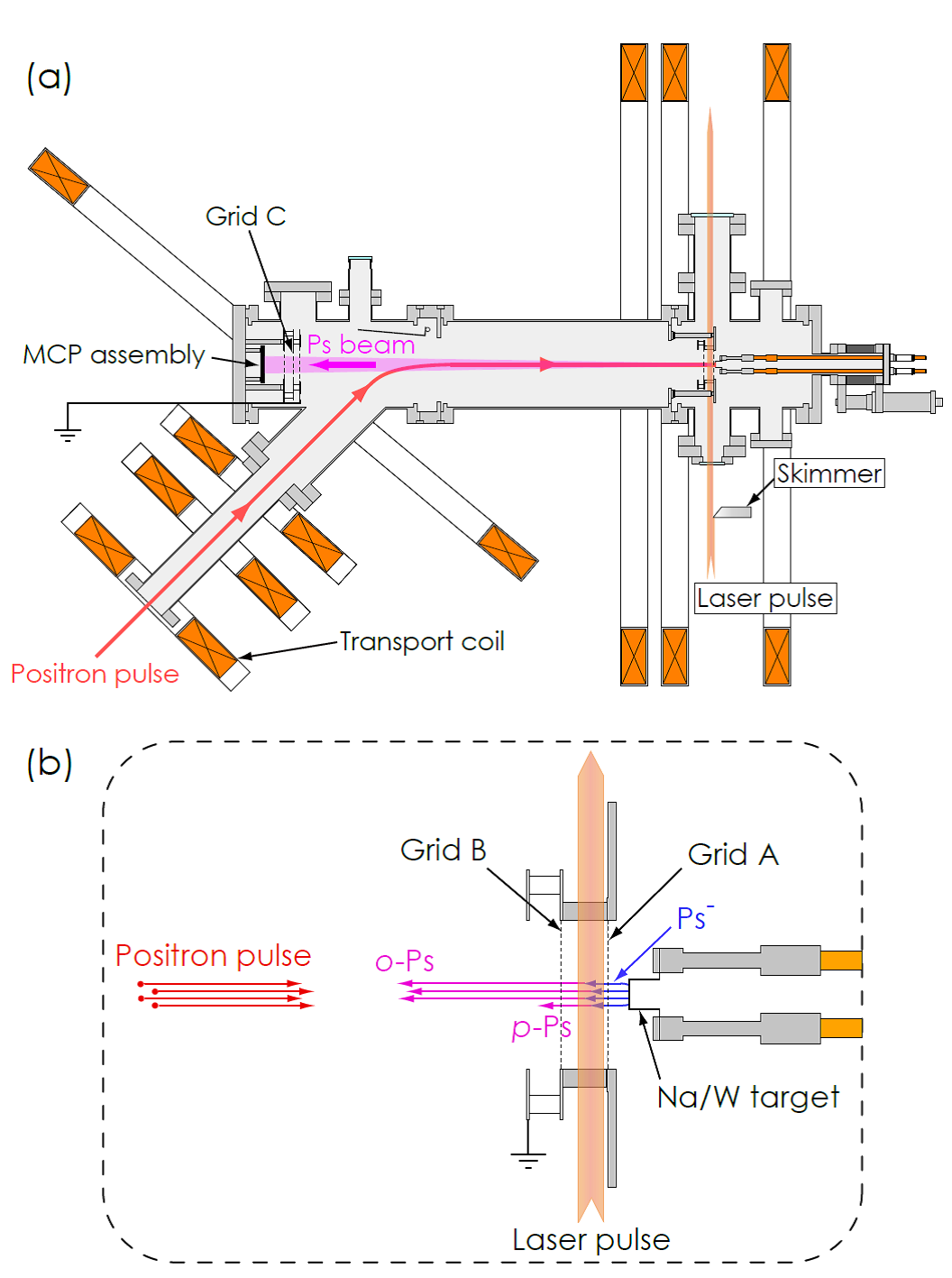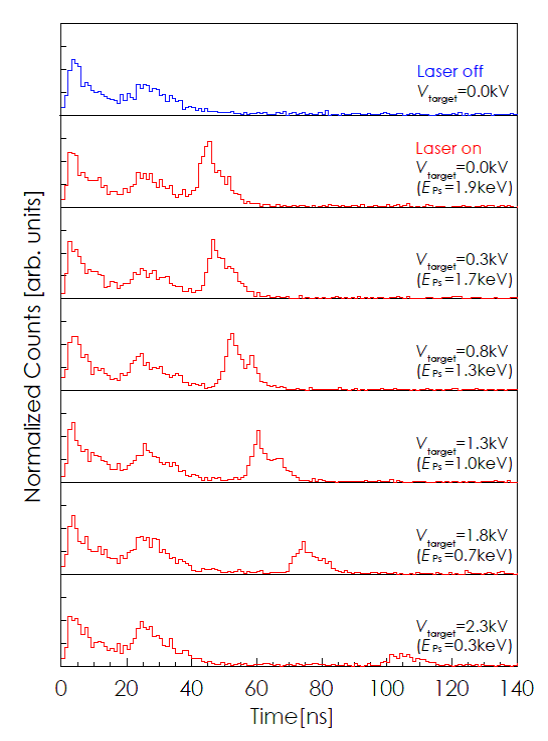Press Release
Successful generation of a positronium beam that can be readily accelerated to over 1 keV
June 27, 2012
Tokyo University of Science, Technology Licensing Organization
High Energy Accelerator Research Organization (KEK)
A research group led by Prof. Yasuyuki Nagashima (Tokyo University of Science) comprising teams from Tokyo University of Science and High Energy Accelerator Research Organization (KEK) succeeded in generating an energy-tunable beam of positroniums (Ps) in an ultrahigh vacuum environment. A Ps atom is a bound state of an electron and its antiparticle, a positron. It cannot be accelerated by conventional means i.e., an electric field, because it has no net charge. However, the new technique allows the generated beam to be readily accelerated to energies over 1 keV.
In 2008, Prof. Nagashima’s group succeeded in highly efficient production of positronium negaive ions (Ps-), a state with one more electron bound to a Ps atom, by bombarding an alkaline-metal- deposited tungsten surface with a positron beam. Subsequently, in 2011, they succeeded in photodetachment—that is, breaking of the generated Ps- ion into an electron and a Ps atom—by using laser light (Michishio et al., Phys. Rev. Lett. 106 153401 (2011)). The present accomplishment is an extension of this work. The pulsed positron beam at the Institute of Materials Structure Science, KEK, was used to efficiently produce Ps- ions, which were then converted into a Ps beam with high efficiency by synchronously irradiating the Ps- ions with high-intensity pulsed laser light (Fig. 1). A change in the time of flight due to acceleration of the Ps atoms by laser irradiation was observed (Fig. 2). Ps atoms with energies of up to 1.9 keV were generated in this experiment, but acceleration to even higher energies is possible.
The demonstrated Ps beam covers an unprecedented energy range and was generated in ultrahigh vacuum, which condition is necessary for the analysis of the surface of materials. The beam is expected to be used as an analytical tool, for instance, in the analysis of surfaces of materials, insulators in particlar, and in diffraction experiments. Furthermore, the properties of Ps, which are not yet completely understood, can be clarified.
This work is a collaborative research project involving researchers from Graduate School of Science, Tokyo University of Science, namely, Koji Michishio (3rd year doctoral student), Ryohei Suzuki (2nd year Master’s student), Assistant Professor Takayuki Tachibana, and Professor Yasuyuki Nagashima, along with researchers from KEK, namely, Professor Toshio Hyodo, Professor Akira Yagishita, and Assistant Professor Ken Wada.
Publication |

Fig.1.Equipment used to generate a positronium beam via photodetachment of Ps-. (a) Overall setup, (b) details of the laser irradiation.

Fig.2.Time-of-flight spectra of positronium (reproduced from K. Michishio et al., Applied Physics Letters, vol.100)
EPs is the energy of a Ps atom generated by photodetachment. Comparison of the top two spectra shows that a peak appears at 45 ns when the laser is turned on. This shows that Ps converted from Ps- by laser irradiation were observed by a detector placed 80 cm away. Reduction in the acceleration voltage caused a delay in the arrival of Ps at the detector.
Media Contact
[ for research ]
Prof. Yasuyuki Nagashima
Department of Physics, Graduate School of Science, Tokyo University of Science
Tel: +81-3-5228-8724
E-mail: ynaga@rs.kagu.tus.ac.jp
Prof. Toshio Hyodo
Institute of Materials Structure Science, High Energy Accelerator Research Organization
Tel: +81-29-864-5658
E-mail: toshio.hyodo@kek.jp
[ for public relations ]
Technology Licensing Organization, Tokyo University of Science
Tel: +81-3-5228-8090
Fax: +81-3-5228-8091
E-mail: tlo@admin.tus.ac.jp
Public Relations Office, High Energy Accelerator Research Organization
Tel: +81-29-879-6047
Fax: +81-29-879-6049
E-mail: press@kek.jp